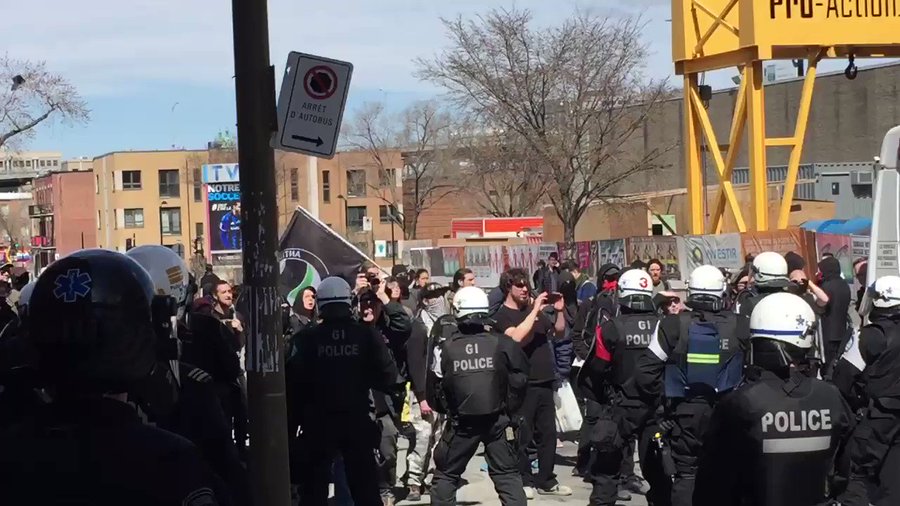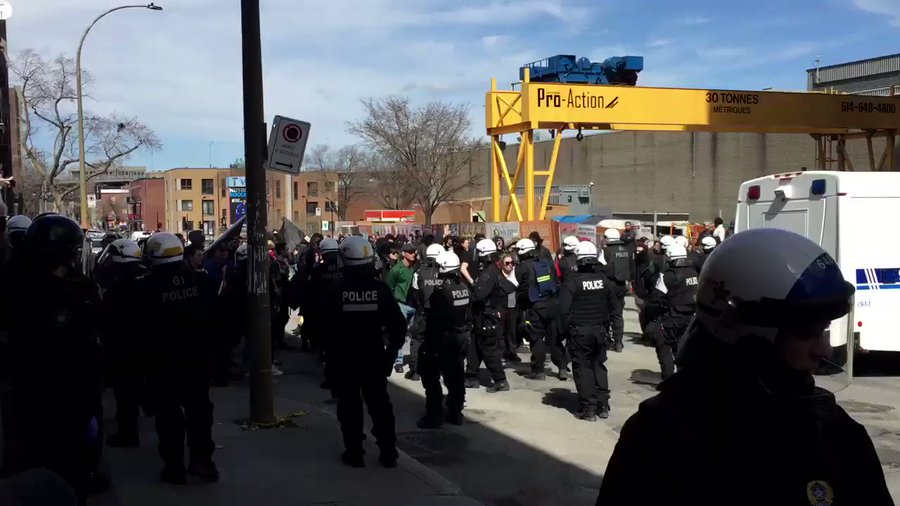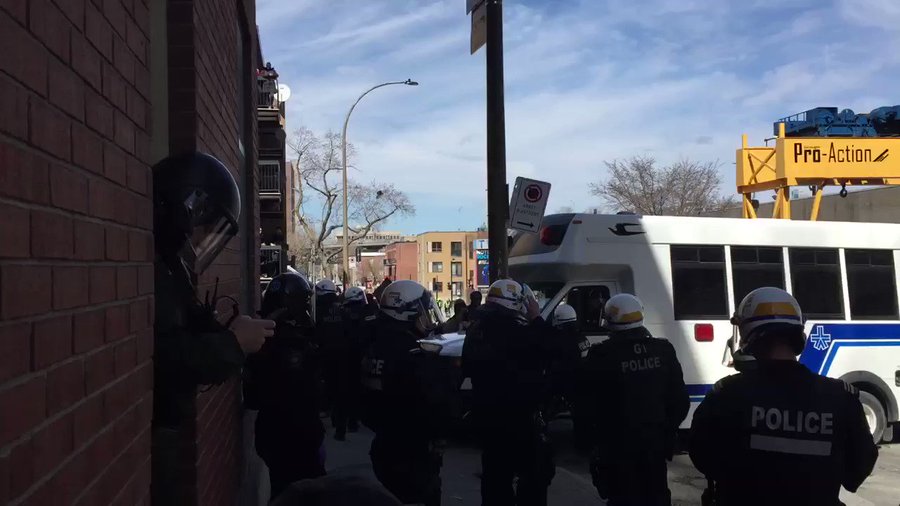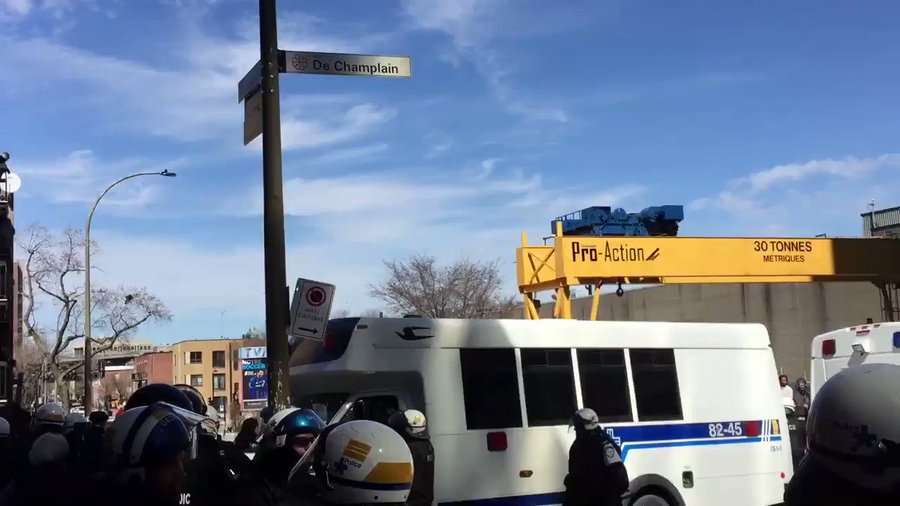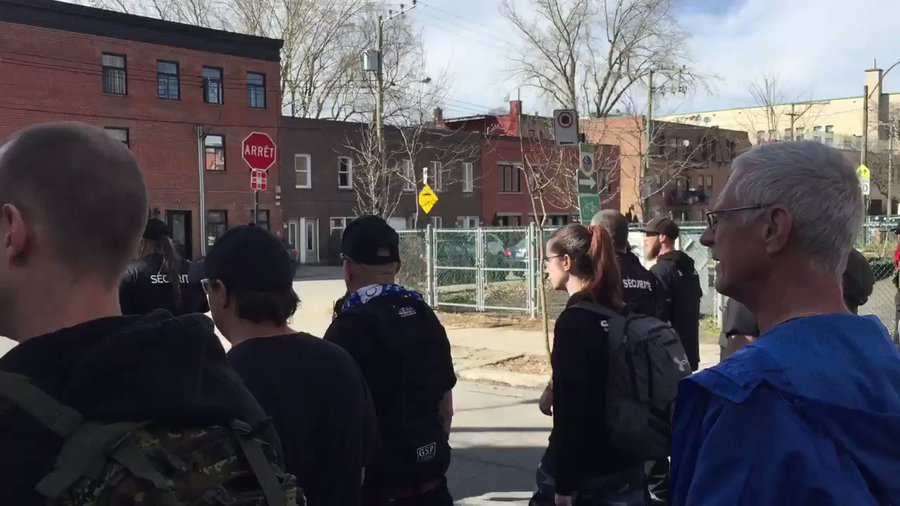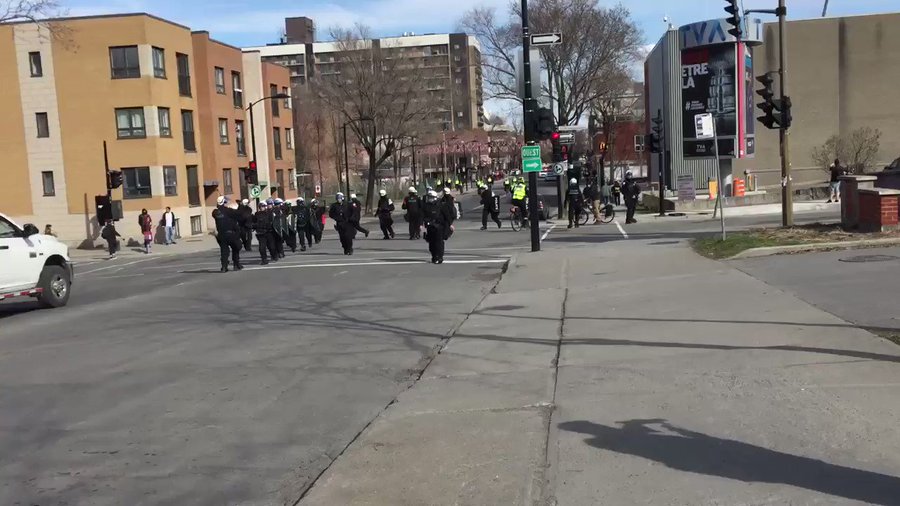But the basis of the UCP’s victory should not be left unexamined. Some might think that its central theme was “hope.” And, again, hope was part of it.
But the UCP’s central theme throughout the campaign was not an uplifting Obama-like call to one’s better angels, but rather a Trump-like encouragement to populist anger. Jason Kenney re-emphasized and embellished this anger in his speech on election night.
Far from a victory speech, Kenney’s speech had an Old Testament quality: a stern tone of anger and vengeance to be visited upon Alberta’s enemies. Kenney quickly worked his supporters into a near frenzy with repeated promises to go after such, environmental organizations first among them. Many observers, this scribe included, found Kenney’s comments singling out these organizations for retribution, and the angry response of his followers, frightening, and frankly far too close to extremist parallels elsewhere, both recent and past.
Alberta has a long and sordid history of going after various groups, what former premier Ralph Klein never failed to term “special interests,” among them (besides environmentalists), social activists, unionists, and academics. Defining the enemies without — e.g., Quebec, B.C., or Ottawa — is often matched with efforts to seek out the enemies within. Primed with dollops of conspiracy-laced Kool-Aid, Kenney’s supporters drank even more deeply on election night of the anger served up by Kenney.
Anger is not, in itself, a necessarily bad thing. There are many things we should be angry about: child poverty, pointless wars, and yes, global warming.
The anger and fear felt by thousands of unemployed Albertans or by others whose wages have been constrained is understandable. But one should always be certain — factually accurate — in who or what should be the cause of anger and measured in one’s response so that the problem is not made worse.
Much of Kenney’s campaign deliberately spread falsehoods regarding Alberta’s current financial difficulties and those of the oil sector in particular. Economists and others, from across the political spectrum, pointed out repeatedly these falsehoods. Equalization is not a theft of money from Alberta. The carbon tax is not a left-wing conspiracy. (It is, in fact, a policy endorsed by conservative economists and large oil companies.) And Alberta is not saddled with a crippling debt. (It has a debt-to-GDP level the envy of any other province in Canada and most national states.)
On the issue of pipelines itself, the hold-up on their construction is not due to a cabal of environmental groups, whose funding is greatly dwarfed by that of oil companies. The idea that American environmental groups worked to lock in Canadian oil so that American oil companies would not face competition is loopy on the face of it.
The causes of a delay in getting pipelines built, the issue that motivated the UCP and led to the NDP’s defeat, are many. There are technical, jurisdictional, environmental, and financial issues. There is also the Supreme Court-mandated need for broad consultation, especially with Indigenous peoples.
For many Albertans, the process has seemed slow, too slow. But that’s how modern societies and economies function; indeed, it is how democracies work. Promises to make the trains run on time by merely snapping one’s fingers and cutting all regulations are the life-blood of authoritarians and con men; see Donald Trump. And, in addition to being politically dangerous, such promises also too often miss the complexities of the real problem at hand.
Anger obscures the serious issues underlying Alberta’s recent elections, notably the province’s continued dependence on oil at a time when global forces — overproduction, slumping prices, and the growing prominence of other sources of energy — make that dependence even more problematic.
Both fear and anger, if unchecked, can have unintended and dangerous consequences. Having tied his promises so heavily to the winds of anger will Kenney — and Alberta — now reap the whirlwind?
Trevor Harrison is a professor of sociology at the University of Lethbridge and director of Parkland Institute, an Alberta-wide research network.
AND HERE IS THE OTHER SIDE FROM RIGHT OF CENTRE JOHN IVISON
John Ivison: Behind Jason Kenney's bluster, there is real rage in Alberta
One poll he cited in Ottawa indicates up to half of his province’s citizens support the concept of secession from the Canadian federation

John Ivison
May 2, 2019
OTTAWA — Alberta’s newly anointed premier, Jason Kenney, returned to Ottawa to start the fight against the federal government he promised during the recent provincial election campaign.
The former federal Conservative cabinet minister was appearing before the Senate energy committee Thursday, as part of its hearings into C-69, the Liberal government’s impact assessment legislation — what critics call the “No More Pipelines” bill.
Kenney put on a bold face and played his hand for a hundred times what it was worth.
He said the bill will do lasting harm to Canada’s reputation as a place to do business and, if passed in its current form, would be subject to an immediate constitutional challenge by his government.
“It is an obvious and flagrant violation of our exclusive constitutional jurisdiction to regulate the production of our natural resources,” he said, citing section 92 of the Constitution Act to intimidate those who might rather stick hot pins in their eyes than read statutes.
Section 92 (a) is clear that provinces retain exclusive jurisdiction over the development, conservation and management of non-renewable resources.
But section 91 is equally clear about the federal government’s exclusivity when it comes to oceans, inland fisheries, shipping, federal lands and waters.
As Kenney likely knows, he is 27 years too late to threaten a constitutional challenge. The Supreme Court of Canada ruled in the Old Man River Dam case that the Constitution is not divided into watertight compartments.
The new premier cited a poll that indicated as many as 50 per cent of his province’s citizens support the concept of secession from the Canadian federation
Stewart Elgie, a professor in the faculty of law at the University of Ottawa, said that Kenney is blowing smoke. “As Pierre Trudeau said: ‘Fish swim.’ Air, water and wildlife all move across borders,” he said. “If an oilsands mine affects fisheries or migratory birds or endangered species or greenhouse gases, the federal government always has an interest.”
But if Kenney’s bluster was overstated, the anger he conveyed on behalf of Albertans was not.
The new premier cited a poll that indicated as many as 50 per cent of his province’s citizens support the concept of secession from the Canadian federation.
“If there was 50 per cent support for Quebec secession, can you imagine a federal government bringing forward a bill that was a direct and obvious intrusion into provincial jurisdiction, and which weakened Quebec’s largest industry? I submit that would be unthinkable and no responsible federal government would do it,” he said.
He admitted many people were probably blowing off steam when they said they wanted to leave Canada, but he said there is a growing crisis of national unity that will be exacerbated by C-69 and the related proposed tanker ban, C-48.
There is no doubt that people are angry — post-election focus groups have indicated as much.
But, in part, they are furious because politicians like Kenney have incited and polarized opinion by pointing to enemies at every turn. In his testimony at committee, he lambasted U.S. foundations for funding a campaign to landlock Canadian energy, and at staff in the Liberal government who used to work for environmental organizations that were backed financially by those foundations.
This conspiracy theory suggests the Liberal government has sabotaged efforts to develop the oilsands, as part of a long-term plan to bottleneck the Canadian energy sector by frustrating pipeline development.
Environment Minister Catherine McKenna followed Kenney at the committee and while she might not be everyone’s cup of chai latte, on development she was unequivocal: “I want these projects to go ahead. We’ve got to get our act together and that is the intent of C-69.”
It is a flawed bill — injecting the use of “Indigenous knowledge,” gender-based analysis and other social outcomes into the environmental assessment of large resource projects. It is not popular with industry — Rich Kruger, chief executive of Imperial Oil, said in an interview the bill is likely to increase costs and timelines.
But it was amended more than 100 times as it moved through the House of Commons and there are opportunities for the Senate to alter it further before it receives Royal Assent.
The anti-development conspiracy theory goes too far. Kenney asserted the Liberals “strangled” Energy East, which they did. But it was already on life-support after President Donald Trump approved the Keystone XL pipeline. Justin Trudeau killed Northern Gateway but he approved the Trans Mountain expansion (then bought the pipeline) and also approved the massive Pacific Northwest liquified natural gas project.
As Amarjeet Sohi, the natural resources minister, told the committee, the courts have placed a constitutional obligation on government to engage in a meaningful two-way dialogue with Indigenous groups, listen to their concerns and make serious efforts to accommodate those concerns. In the absence of such engagement, the courts will continue to send resource projects back to the drawing board.
Kenney’s charge is that C-69 completely misses the balance between environmental protection and economic development.
The pendulum certainly seems to have swung too far in favour of obstructing resource development.
But there remains the prospect that the track record before the courts may improve, if Indigenous Canadians are fully engaged in the process.
C-69, for all its many flaws, should not be a casus belli between Alberta and the federal government.
IN REGARD TO ALBERTA'S HISTORIC GRIEVANCES WITH EASTERN CANADA IT LED TO LEFT WING REFORM MOVEMENTS LIKE THE ONE BIG UNION
Sep 21, 2007 - Eugene Plawiuk's account of the Edmonton general strike of 1919 which was sparked off in solidarity with the general strike in Winnipeg,.
Sep 21, 2007 - Eugene Plawiuk's history of the Calgary general strike of 1919, which started off as a sympathy strike for the Winnipeg general strike and soon ...
AND THE COOPERATIVE COMMONWEALTH FEDERATION (CCF) IN THE THIRTY YEARS PAST BECOMING A PROVINCE IN 1905
In reality both the Klein Conservatives and the Manning Reform party have their ... that gave birth to the original 'reform' party the CCF (Cooperative Commonwealth ... REFORM MOVEMENT is the work and sole property of Eugene W. Plawiuk.
NOT JUST ALBERTA BUT THE WESTERN PROVINCES WERE UNDER MANITOBA BEFORE THEY WERE GRANTED PROVINCEHOOD
GRIEVANCES AGAINST ONTARIO AND OTTAWA WERE BORN AND BRED IN REBELLION OF THE METIS AND LOUIS RIEL IN THE PRAIRIES SEE MY REBEL YELL
AS WELL AS MY HISTORY OF THE ALBERTA SOCIAL CREDIT MOVEMENT
The history of Alberta Alienation and the autonomous farmer worker resistance to Ottawa, the seat of political and economic power of the mercantilist state, dates back to the founding of the province one hundred years ago.

With the recent debate on the Wheat Board there has been a focus in Federal politics on Western Farmers. The farmers movement in Western Canada influenced politics in Canada both left and right for the past ninety years and still is.
It is the politics of producerism. It's populism is deeply political, and its producerism is the source of its critique of the capitalist monopoly marketplace.
When it is used by the right wing such as the Reform party, it is used as an attack on state monopolies. When used by Social Credit it was the monopoly of the banks. When used by the left such as the CCF it was an attack on monopoly capitalism and its state.
THE COINCIDENTAL BIRTH OF THE NEW DEMOCRATS AND THE OIL INDUSTRY IN ALBERTA













